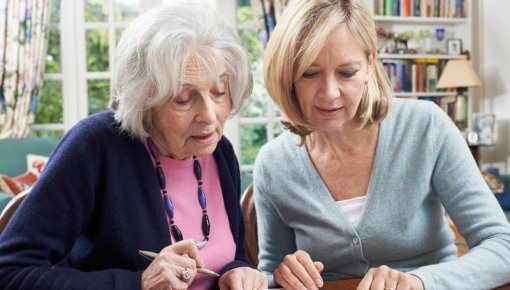I could take less and less strain
But over time I could take less and less strain, both at work and at home. About twelve years ago I had a slipped disc and needed surgery. But the pain didn’t go away after the operation.
I tried everything possible, above all painkillers. I really wanted to work. I had taken on a management position and had very long working days with lots of responsibilities. By then I also had pain in my hands, feet and knees and a “hammering” feeling in my whole body. Some of my work duties were getting harder and harder to do because of that.

